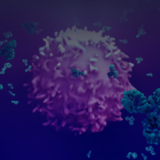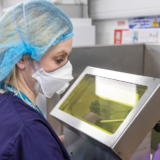CEO Chris Molloy explains why collaboration is essential to the discovery of new and effective medicines.
As 2016 ends, we are looking forward to an exciting New Year at the Medicines Discovery Catapult (MDC).
We are building new facilities, investing in cutting edge equipment, attracting talented people and planning impactful projects as we begin our journey as the national centre of excellence for the discovery of new and effective medicines.
Global need for innovative medicine is on the increase, and the UK is historically a world leader in the sector. Did you know that 25 of the top 100 medicines were discovered in the UK?
We have an inherent competitive advantage, with a massive patient database in the NHS, excellent universities, research organisations and SMEs, a wealth of strong and engaged patient charities and advanced capabilities in genomics and bioinformatics.
To continue bringing wealth, health, trade and investment to the UK, however, we need to work together to address the issues which still limit our success.
Barriers to effective medicines discovery exist across all elements of science, technology, informatics process and regulation. Each charity, biotech, pharmaceutical company and technology provider naturally focuses on the issues most important to them – and so they should. In regulation, too, discussions are often on a company by company basis.
We believe that it is specific diseases which bind together patients and their stakeholders, including providers of new medicines. By providing access to expertise, technology and informatics development we can enable naturally collaborative syndicates to form, anchored to the ground by patient groups.
These expert partnerships, created around a problem, can work on portfolios of assets and attract additional sources of risk finance that can propel them towards the people that need them the most.
New thinking is overdue. MDC has the ability to convene multiple stakeholders and develop solutions that work for the whole community.
We can even create collaborative solutions for regulation, to enable a partnered ‘disease by disease’ discussion around what a ‘Fast to patient’ package may look like.
We intend to help remove the air bubbles which potentially hold back or even prevent multiple medicines from making it to patients.
A high-risk approach that has tried and failed in the past is to throw increasing amounts of finance behind single projects or targets, setting out to build many bridges over the ‘valley of death’ between basic research and a medicine. This model of ‘scatter-gun’ research is costing the industry both time and money.
We aim instead to raise the floor: to reduce the risk of failure by syndicating portfolios of disease targets into packages that make funding a lower risk by increasing the likelihood of success.
In principle, any pharmaceutical company could employ this approach, but we at MDC are uniquely placed to bring together the public and private, academic and charitable sectors.
Patient charities have already expressed an interest in working with us, giving us access to their research and, crucially, patient groups.
We will also be working closely with the other health Catapults – Precision Medicines and Cell and Gene Therapy.
This way, we aim to replace the current vicious circle with a ‘virtuous circle’ of collaborative early-stage discovery, which will be more targeted and pave the way for others to undertake patient trials with greater chance of success.
In the New Year, we will be announcing our first projects as well as some significant new appointments and partnerships, all working together towards the pursuit of new medicines and the creation of the next generation of drug discovery talent in the UK.
This blog, ‘A problem shared…why collaboration is essential to the discovery of new and effective medicines’, also appears as the guest blog on the InnovateUK website.




